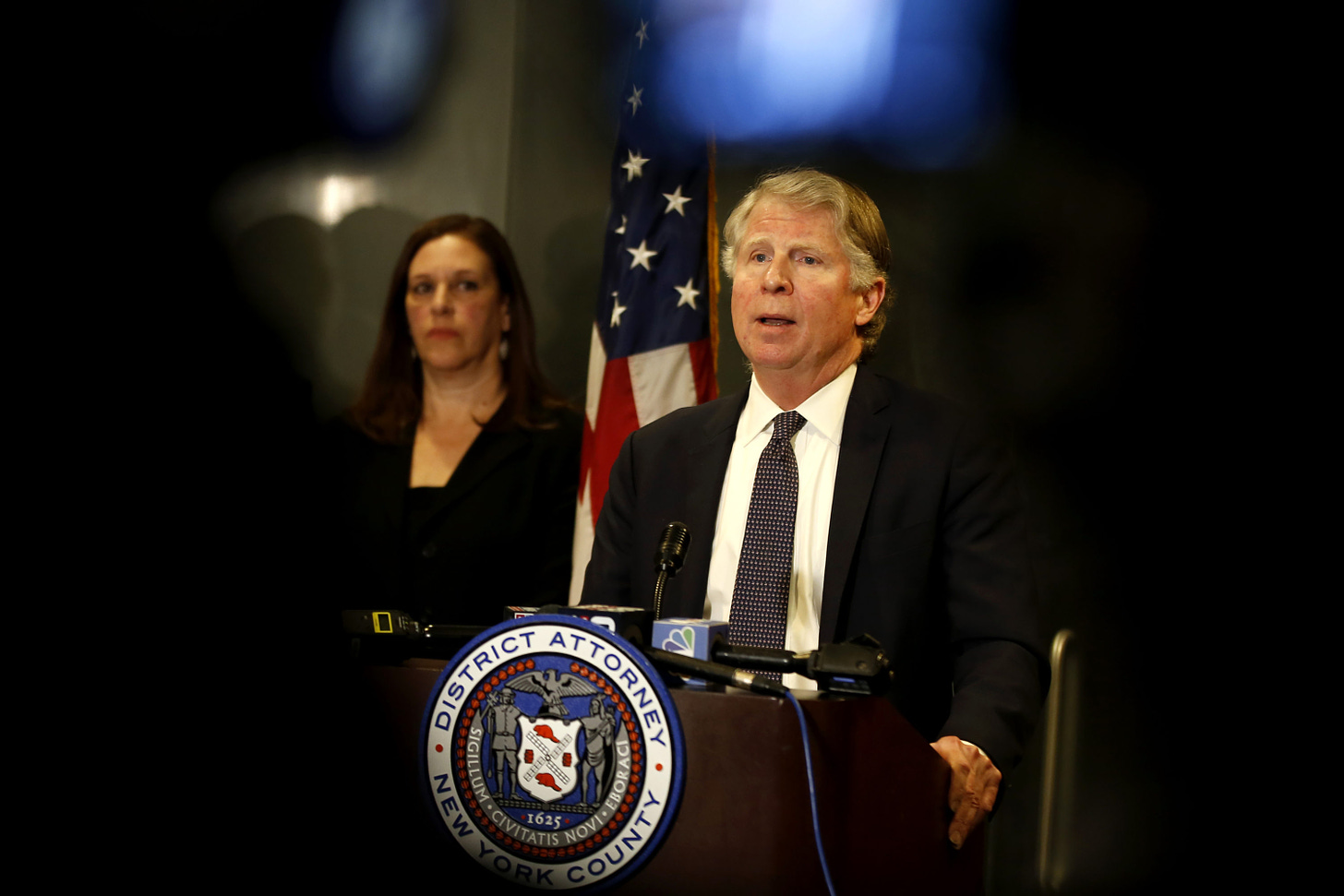Why the Manhattan District Attorney Should Have Trump Worried
Donald Trump's case won't be Manhattan District Attorney Cyrus Vance's first high-profile prosecution.

On May 25, the day after Manhattan District Attorney Cyrus Vance Jr. announced that he had convened a criminal grand jury in his investigation of Donald Trump, the former president denounced the probe as “purely political . . . part of the greatest Witch Hunt in history.”
In other words, Trump sees himself—or would like to be seen—as the victim of prosecutors hunting for headlines. His attempt to depict himself as a targeted political celebrity counts on the country not knowing Vance’s history.
In 2011, the second year in Vance’s tenure as DA, he initiated what the New York Times called at the time “his marquee prosecution.” He indicted Dominique Strauss-Kahn, the head of the International Monetary Fund and a leading presidential candidate in France. The celebrity defendant was accused of sexually assaulting a hotel housekeeper. The case fell apart, however, when prosecutors belatedly discovered that the housekeeper had lied about multiple matters.
That setback followed another one, in which Vancefailed to convict two New York police officers for allegedly raping an inebriated woman whom they had taken back to her apartment. One juror later cited the DA’s failure to produce DNA evidence of rape as the reason for acquittal.
Losses in high profile cases—particularly where the defeats derive from failures of proof—have sobering effects on prosecutors. Establishing guilt beyond a reasonable doubt to 12 jurors in any complex case is difficult. The difficulty compounds for high-profile defendants with top-flight lawyers and significant resources. An acquittal can empower individuals like Trump, conveying a sense of immunity instead of the accountability prosecutors seek.
Experience teaches that when trying celebrity defendants, airtight cases are often the only ones worth bringing.
The record suggests that Vance learned that lesson.
In 2012, the year after the Strauss-Kahn prosecution failed, Vance reportedly overruled his line prosecutors’ recommendation to proceed and instead declined prosecution of two very high profile New Yorkers—Ivanka Trump and Donald Trump Jr. They were under investigation for fraudulent sales representations in connection with a hotel-condominium development named Trump Soho. According to Pro Publica, in one email, "the Trumps discussed how to coordinate false information they had given to prospective buyers. In another . . . Donald Jr. spoke reassuringly to a broker who was concerned about the false statements, saying that nobody would ever find out."
Vance dropped the case after a meeting with Marc Kasowitz, the senior Trump’s lawyer. While there were whispers of corruption concerning Krasowitz’s previous $25,000 contribution to Vance’s election campaign, Vance had returned the contribution before the meeting. And the case was not without its problems. The alleged fraud victims were unavailable to testify because the settlement of their civil suit included a non-disclosure agreement (of course).
Vance defended his decision, saying, “I did not at the time believe beyond a reasonable doubt that a crime had been committed. . . I had to make a call and I made the call, and I think I made the right call.”
In 2015, Vance declined to prosecute another celebrity-defendant, Harvey Weinstein, in a case in a case in which a woman alleged that he had groped her breasts in a meeting in his New York office. This time, prosecutors were more careful than they had been with the complaining witness in the 2011 case against the police officers. The alleged victim in the Weinstein case had given “shifting accounts of her previous sexual assault complaint in Italy.”
Five years later, however, Vance became the first DA in the country to convict Weinstein for sexual assault. The 2020 case had six different sexual assault survivors. Plainly, with that amount of evidence, Vance felt confident to proceed successfully against a high-profile defendant.
To a prosecutor, Vance’s history looks like a district attorney who learned from experience to take special care in cases involving celebrities, and to proceed only with the strongest of cases.
That kind of approach is reflected in Vance’s methodical evidence-building in the current investigation—litigating all the way to the Supreme Court to get Trump’s tax returns, multiple interviews with former Trump lawyer Michael Cohen, recruiting a top financial prosecutor from outside, and collaborating with the state attorney general.
Add the fact that Vance is not running for re-election, and if an indictment comes, the record will reflect a serious prosecutor’s attempt to hold a powerful man accountable in a way he has never been.
Trump can call it a hoax and a witch hunt all he wants. But if and when Vance brings a case, chances are he’ll have assembled the iron-clad evidence to win it.




